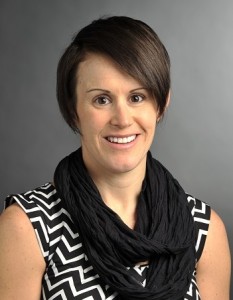National partnerships are laying groundwork for continued program growth in 2016

BCC program director, Kelly Berger (pictured), is working with BCC’s residential team on ushering in new evidence-based therapy models for BCC’s residential programs.
The tapestry for all of this change is called Integrated Treatment Design (ITD). ITD weaves across all of BCC’s residential programs, from Maryland to West Virginia. At its core are several new toolboxes for BCC’s direct care teams who are with the residents 24/7.
BCC has engaged in two national partnerships to help onboard our staff. The first is with Chaddock, a residential provider with similar programs to BCC except based out of Quincy, Illinois. Chaddock is widely considered an industry leader in advancing residential treatment for children who have experienced severe abuse, neglect, or other trauma in their early years of development.
The second is through BCC’s participation in the Residential Transformation Cohort (RTC) project. Offered through the Alliance for Strong Families and Communities, it is a gathering of like-minded human service organizations who are in the midst of a cultural and programmatic transformation.
The lead facilitator of the RTC is Tom Woll, a nationally renowned service delivery and organizational development expert known for his analysis of trends coupled with a thoughtful and entertaining presentation style. BCC was fortunate to host Mr. Woll at the end of March on both the West Virginia and Baltimore campuses. He spent time in the cottages coaching staff and supervisors, and also provided some high level discussion and debrief for the program leadership.
“One of the biggest shifts BCC is engaged in right now – something we had started before partnering with Chaddock or participating in the RTC – was a shift away from a punitive behavior-management system,” says Berger. “The work we’re doing with Chaddock and Tom Woll teaches staff to read and assess the residential culture and energy of the cottage. They learn to gauge the non-verbal behaviors and cues. Overall the practices we’re rolling out allow our staff to model, teach, and that is where we can make a real impact for someone.”
In addition to working on deployment of these new tools, Berger is simultaneously overseeing a program specifically serving teenage girls, sees massive potential for positive outcomes. The program for females specifically opened at the end of 2015 in Baltimore, with West Virginia set to open this spring.
“Organizational change is difficult at any level,” commented Laurie Anne Spagnola, President & CEO. “However, this is what we need to be doing – we need to focus on what practices are evidence-based and focus on what our successful peers have learned. It’s only through this kind of knowledge sharing that we as a sector can truly hope to make a difference in the lives of these kids.”
Read more from New coaches, new approaches steering BCC residential programming